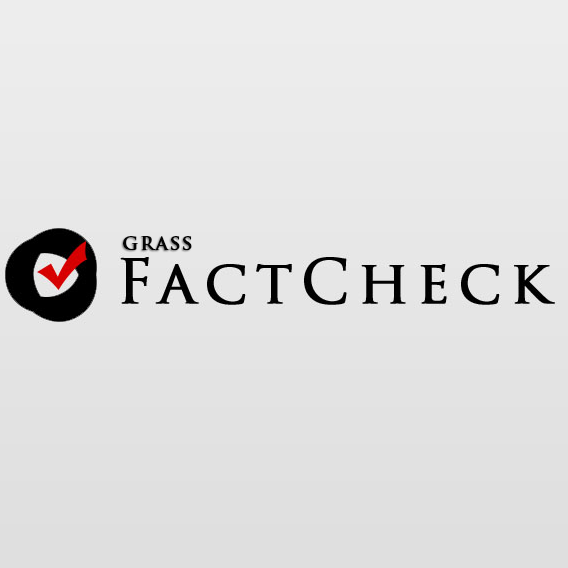Roman Gotsiridze: “Prices have nearly tripled over the past 20 years, yet the property tax still starts at GEL 40,000.”
Verdict: FactCheck concludes that Roman Gotsiridze’s statements is TRUE.
The current form of the property tax has been in effect since 2004. Consumer prices increased by 179% between 2005 and 2024 and by 186% between 2005 and 2025 (based on data from January-September 2025), equivalent to a 2.8 to 2.9 times rise. The purchasing power of GEL 40,000 in 2004 equals GEL 114,000 today whilst today’s GEL 40,000 is worth just GEL 14,000 in 2004 terms.
The nominal average monthly taxable salary rose 12.5 times – from GEL 157 in 2004 to GEL 1,970 in 2024 – and the nominal annual GDP per capita grew 9.9 times from GEL 2,500 to GEL 24,900.
An individual needed to earn 21 times the average salary to become liable for property tax. Now, earning just 1.7 times the average is enough. If the pace of nominal wage growth continues, even an average earner will be required to pay the property tax by 2029.
Whilst 49,000 people were registered as property taxpayers based on income as of 2013, that number had increased 5.5 times by 2024 – to 270,000.
The Ministry of Finance announced plans for property tax reform in 2023 but nothing has changed in the two years since.
Consumer prices, nominal wages and the GDP per capita have all risen over the past two decades – however, the income threshold for property tax liability remains frozen where it was 20 years ago. Given its factual accuracy, FactCheck concludes that Roman Gotsiridze’s statement is TRUE.
Analysis
Member of the 10th convocation of Parliament, Roman Gotsiridze, published a post on social media regarding the property tax: “It has been more than 20 years since this tax (property tax) was introduced (I personally drafted this section of the Tax Code, the GEL 40,000 exemption was my idea). Salaries have increased and prices have almost tripled since then. Today’s GEL 900 is roughly equivalent to GEL 300 back then. Only a few people paid this tax at the time – now it affects a large part of the population.”
The sixth convocation of Parliament adopted a new Tax Code in December 2004, coming into force as of January 2005. The total number of taxes was reduced from 21 to six – one of them being the property tax. This tax applied to legal entities and to individuals whose family’s annual taxable income exceeded GEL 40,000. The property tax is categorised as a local tax and the rate is set by municipalities within two brackets – for incomes between GEL 40,000 and GEL 100,000 and for those above GEL 100,000 – with the upper limit capped at 1% of the property’s value.
The property tax is a so-called “wealth tax” by nature, imposed on those the state considered affluent. The taxable assets include real estate (houses, land plots, country houses, various types of buildings) as well as aircraft and yachts. The list was expanded to include passenger cars in 2010.
The income threshold for taxation was set at an annual GEL 40,000 back in 2004. Families earning over GEL 100,000 were taxed at a higher rate.
Inflation has eroded the value of money over time. Consumer prices rose by 186% between 2005 and 2025 – or 2.9 times. In 2025 terms, GEL 40,000 has the purchasing power of just GEL 14,000 in 2004 whilst GEL 40,000 in 2004 equals GEL 114,000 today. In other words, in 2004 the government considered someone earning GEL 39,999 not wealthy enough to pay the property tax. Today, that same person would not only be considered wealthy but – very wealthy and taxed at a higher rate.
Graph 1: Change in the Purchasing Power of GEL 40,000 (2004=100)
Source: National Statistics Office of Georgia
Both nominal and real average wages rose sharply between 2004 and 2024. Whilst the average monthly taxable salary for employed individuals was GEL 157, by 2024 it had increased 12.5 times to GEL 1,970. A person needed to earn 21 times the average salary to become liable for property tax in 2004. However, earning just 1.7 times the average was enough by 2024. If two people in a household each earn 85% of the average salary (a taxable income of GEL 1,670, or a net income of GEL 1,300) as of 2024, they fall within the property tax bracket.
Nominal wages have continued to rise steadily, even during periods of economic crises. They increased by 11.5% in 2024 with a 10-11% rise recorded in the first and second quarters of 2025 as well. If this pace continues, the average annual salary will surpass GEL 40,000 nationwide by 2029 and in Tbilisi alone by 2027.
As of December 2024, 270,000 people were earning GEL 3,600 or more per month (GEL 43,200 annually) as compared to GEL 49,000 I December 2013 – reflecting a 5.5-fold rise. Although income for tax purposes includes rent, honoraria and other forms of financial gain, the primary burden falls on wage earners.
The Ministry of Finance announced the start of work on property tax reform in October 2023. No changes have been made to the Tax Code in this regard as of October 2025 although Giorgi Kakauridze continues to acknowledge the need for reform.
The nominal wage increased 12.5 times between 2004 and 2024 – from GEL 157 to GEL 1,970 – whilst the nominal GDP per capita rose 9.9 times, from GEL 2,500 to GEL 24,900 annually. When adjusted for inflation, real wages and the real GDP grew 4.5 times and 3.5 times, respectively. Despite the aforementioned changes, the minimum income threshold for property tax liability has remained the same – still set at GEL 40,000. Given its factual accuracy, FactCheck concludes that Roman Gotsiridze’s statement is TRUE.








